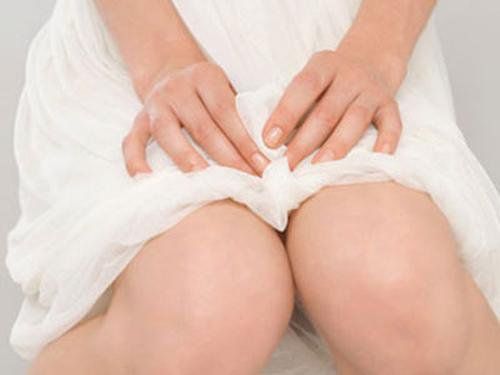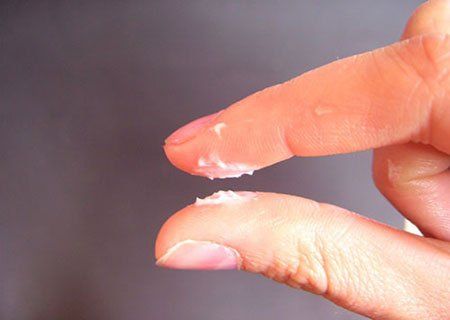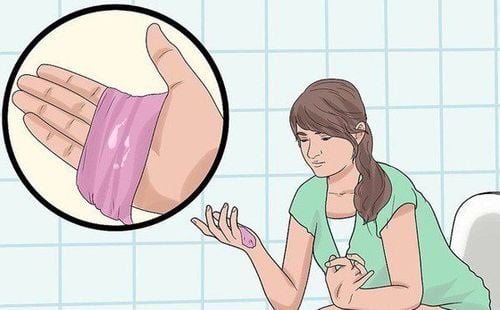This is an automatically translated article.
There are many people who mistakenly believe that proper vaginal hygiene is the need to wash inside the vagina. However, there are many studies that have demonstrated that doing so can carry many adverse risks for women. So how to properly clean the intimate area?1. What is the difference between a vagina and a vulva?
The vagina is the internal part of the female genitals. The vulva is the outer part, which includes structures such as the clitoris, labia and labia, and the vaginal opening.The vagina is an internal organ and like other internal organs, it does not need to be cleaned.
A complex population of good bacteria and other bacteria helps keep the vagina healthy. Washing, especially with soap or strong douches, can upset the pH balance in the vagina, increasing the risk of infection and unpleasant odors.
2. Does the vagina need cleaning?
The vagina and vulva secrete a variety of fluids that are important for overall health.People should not try to get rid of all vaginal odor by washing the vagina. A naturally healthy vagina has a mild odor.
Vaginal washing will also not eliminate vaginal infections. In some cases, it can even make them worse. Using strong soaps can dry out the delicate vaginal tissues, causing tiny tears that make it easier for dangerous bacteria to infect the vagina.
Risk Research has consistently found that vaginal washing increases the risk of a wide range of health problems.
A 2013 study of Egyptian women who regularly douche found that it increased the risk of preterm birth and pelvic inflammatory disease.
Douching correlates with a higher risk of many side effects on pregnancy outcomes, including:
Ectopic pregnancy Low birth weight Amniotic fluid, an infection of the membranes that surround the baby Baby Preterm birth Other risks of vaginal cleansing methods such as douching include:
Cervical cancer Endometritis, which is an infection of the lining of the uterus Increased risk of a contagious infection sexually transmitted (stis), including hiv Bacterial vaginosis Yeast infection Vaginal pain Although a person may clean their vulva, a vulva close to the vagina means any Any hygiene product can enter the vagina. Strong cleaning products can also irritate the vulva.

Thụt rửa âm đạo thường xuyên không là vệ sinh vùng kín đúng cách
3. How to clean the vulva safely
The vagina is a self-cleaning organ, and people don't need to clean it. Frequent douching is not necessary.People can help keep the area clean and healthy by:
Using barrier methods, such as condoms, to reduce the risk of pregnancy and sexually transmitted diseases with sexual partner Keep the vaginal area as dry as possible, which may involve changing underwear if it is wet from sweat, menstrual blood or other fluids Urinating after sex, to avoid developing an infection UTI Wipe from front to back after urinating Limit vaginal sex immediately after anal sex, as this can spread bacteria from the anus to the vagina To protect When giving birth to the vulva area, people can wash the outer intimate area with warm water. If desired, they can use a mild, unscented soap. They should then wash the vulva thoroughly and then dry the area.
It is important not to put soap in the vagina, and not necessarily to use soap that manufacturers have labeled especially for the genitals.
4. The wrong ways to clean the vulva and to avoid
To avoid infection, pain, and irritation, it is important not to use the following products:Douches, even those that the manufacturers claim are safe or natural Female deodorant spray Perfume Soap Laundry room Fragrance soap Vaginal steaming Some alternative medical sites advocate vaginal steaming, which involves sitting in a steam bath with a variety of herbs.
These herbs are said to cleanse the vagina and improve the health of the uterus.
There is little evidence that vaginal steaming is effective. Steam cannot penetrate vaginal tissue or reach anywhere near the uterus.
In addition, herbs can irritate tissues of the vagina or vulva, and steam that is too hot can cause severe burns.
According to a 2019 article, a woman tried steaming her vagina to reduce vaginal prolapse. As a result, she suffered second-degree burns.

Để vệ sinh vùng kín đúng cách bạn nên sử dụng dung dịch vệ sinh riêng
5. When should you see a doctor?
A person should see a doctor if they experience a sudden change in vaginal odor, especially if the odor is very strong.A fishy odor often signals BV. Regular cleaning will not be able to get rid of the odor and can even make the infection worse.
Symptoms of a vaginal yeast infection, or thrush, can include:
Itching White or yellow discharge Burning Discharge with a chewy texture White coating on the lining of the vulva Pain during intercourse If a person If they have BV, they may notice the following symptoms:
Fishy smell Itching Pain when urinating Pain during sex Douching and other hygiene methods may do more harm than good and there is little evidence showed that they clean one's vulva or vagina effectively and without risk. If a person wants to clean their vulva, they should use warm water and perhaps a gentle soap if they wish.
If a person feels unusual discharge or has an unpleasant vaginal odor, they should see a doctor. This is one of the first signs of an infection, which needs to be treated.
Vinmec International General Hospital provides female customers with a package of gynecological examination and screening. This examination package helps customers to detect inflammatory diseases early, thereby treating the disease easily and inexpensively. At the same time, Vinmec's gynecological examination service package also helps screen and detect cervical cancer early.
Please dial HOTLINE for more information or register for an appointment HERE. Download MyVinmec app to make appointments faster and to manage your bookings easily.













